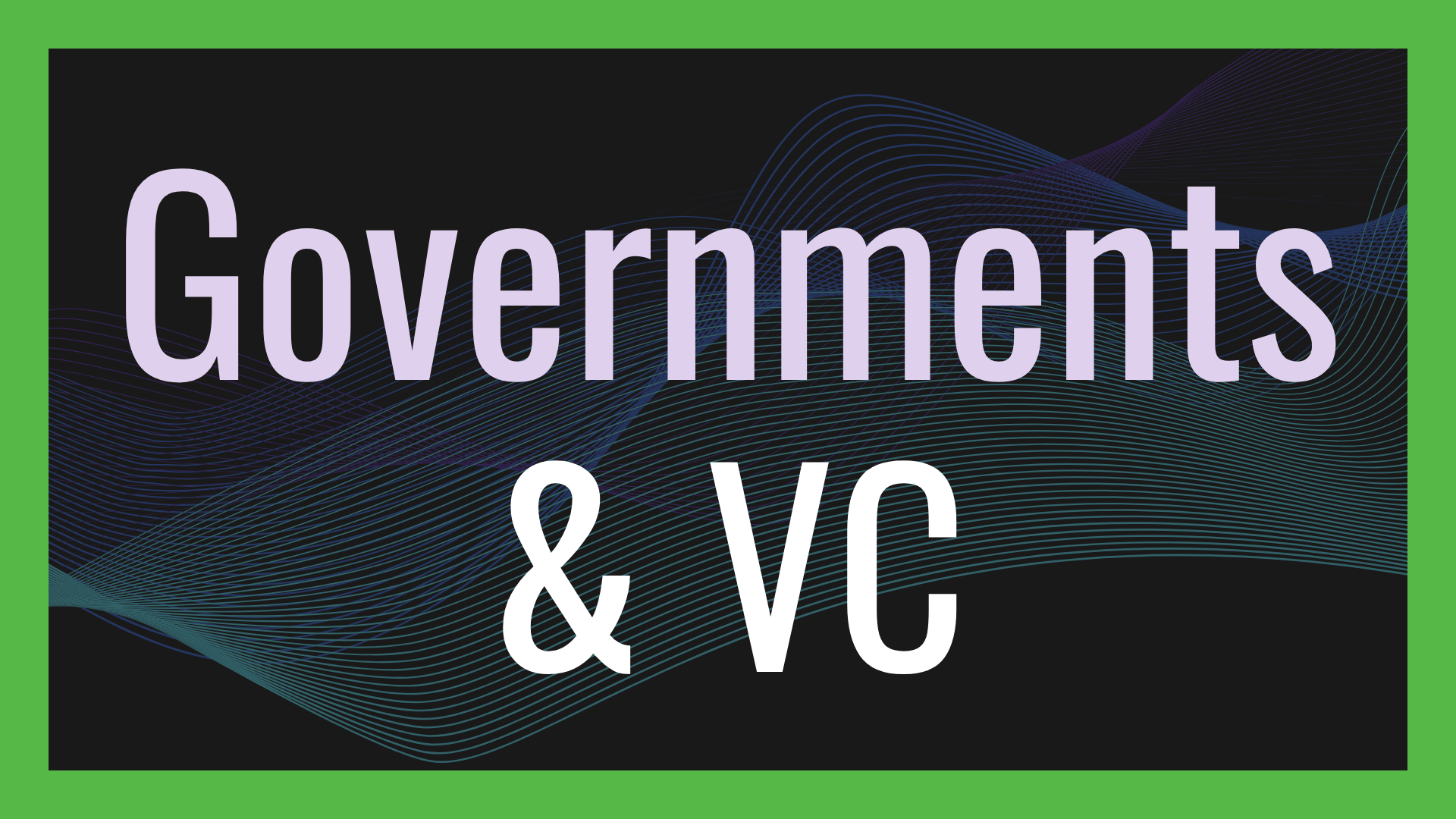
In addition to your Investment Thesis, most of the decisions you will make as a new venture fund manager are directly related to the size of your fund.
Why is fund size important?
Fund size influences the stage of investment, the accounting requirements, the number of deals that are invested in, the amount that you can invest in every deal, the follow on strategy and many other variables. Most importantly, fund size determines the budget to pay the managers, who are called General Partners or GPs, and the team.
Smaller funds of less than $20 MM normally have a part-time team in developed countries. As an example, for a $10 MM fund, you can expect approximately $200,000 per year to cover all of the expenses of running the fund, assuming a standard 2% Management Fee. In most developed countries, this is not enough money to cover operating costs, deal-related closing costs, and the full-time salary of more than one GP in the fund.
What are common venture fund sizes?
Venture capital firms are generally grouped in ranges of fund sizes that are tied to investment stage. For this analysis, we are going to focus on what are called early-stage funds, which are Series A or earlier. Firms with larger fund sizes can focus on earlier stage deals, though a smaller fund generally can not do later stage deals.
To get an idea of how the size of a VC fund will impact the types of startups supported, the experience needed, and the budget requirements for venture capital funds, see the example chart below:

How do you determine what is the optimal fund size?
As a rule of thumb for a New Manager, the upper limit of your fund size is 10 times the amount of what you think you can easily raise from contacts that you already have. When you think about the size of your fund in this manner, you can also see how adding GPs with fundraising contacts can be a good strategy to grow the fund size. Just keep in mind that, in developed countries, full-time GPs normally require between $20 MM and $40 MM per head in fund size to cover salaries, expenses and other expenses.
How much do the general partners have to invest in a venture capital fund?
For funds over $10 MM and sometimes with smaller funds, Limited Partners will require that the General Partners invest at least 1% of the total fund size. The investment can be contributed over the through the same Capital Calls that other LPs are making.
As an example, with a $10 MM fund, the GPs may be asked to invest $100,000. If there are two GPs, then each GP will be asked to invest $50,000. The fund may do five Capital Calls over five years, so each GP would need to contribute $10,000 per year in this hypothetical scenario.
(Are you trying to start a venture capital firm? If so, be sure to review our How to Start a Venture Capital Firm Guide)
What are exercises to determine an ideal fund size?
Here is a structured approach to consider your ideal fund size:
1. Quantify Your Network
- First, identify all of your friends and acquaintances that have money to invest, and place them in a spreadsheet like the Network Investment Spreadsheet shown above.
- Next, besides each person, make a guess as to the amount of money that the individual might contribute as well as the likelihood of them investing in your new fund, and try to be very realistic.
- Finally, sum up the amounts and discount by the likelihood, as demonstrated in the Network Investment Spreadsheet, to determine your Fund Potential Size.
2. Analyze the Initial Size of Your Venture Fund
- First, take the Fund Potential Size you calculated above, and place it into one of the buckets from the Fund Sizing Chart. For example, if your Fund Potential Size is $20 MM, then you can realistically do a Seed, Pre-seed or Angel stage fund. Ask yourself - is your "bucket" the type of fund, and organization, that you want to run?
- Next, consider what you might do to raise a larger fund size, which could include things like (1) increasing the size of your network or (2) adding another General Partner to the team, and analyze if this is something that you want to do by reviewing the pros and cons for each method of increase.
- Finally, select an Initial Fund Size that fits your goals, and that you believe you can realistically accomplish.
3. Validate Your Initial Fund Size
- First, consider if you and your team have the financial capacity to invest 1% or more of the Initial Fund Size, and adjust the fund size accordingly. Keep in mind that you will likely NOT need to commit this money to start the fund, or all at once. Most fund commitments are funded over a period of time, so the General Partners can invest into the fund at the same rate as the other LPs, which are done through Capital Calls on a semi-annual basis, either as needed or on a schedule.
- Next, evaluate if you have the time to raise a fund without income coming in, and adjust the fund size accordingly. For reference, raising a fund will take 18 to 24 months and will require at least 20 hours per week of your time for a fund of less than $15 MM, and at least 40 hours per week of your time for a larger fund.
- Then, evaluate if you want to make the long-term commitment to a fund given the Team Size and income opportunities, and adjust the fund size accordingly. For reference, most funds will operate for at least 10 years and often get extended to 12 or 15 years.
- Lastly, given all of the evaluation, select a Final Fund Size that is right for you.
What happens after you determine your fund size?
This is just one part of the first steps to starting a venture capital firm, which include:
- Review our VC Investment Thesis Template
- Determining Your Venture Capital Fund Size
- Selecting a Venture Fund Area of Focus
- Building a Strong Value Proposition for a VC Firm
We will be adding separate guides for each of these sections shortly on our main How to Start a Venture Capital Firm Guide.
* * *
This content is provided by VC Lab, the YC for VC. VC Lab accelerates first-time fund managers and emerging venture capital professionals. Learn more at:
https://GoVCLab.com
Launching a fund still costs $150,000 and takes 6-12 months. Discover how we're changing that in 2026 at:
https://govclab.com/2026/01/06/2026/
Start Fund delivers fast results. Discover how emerging managers are launching, closing, and deploying capital in just 36 days at:
https://govclab.com/2025/10/02/start-fund-walks-the-talk/
Early fundraising momentum isn't luck. Discover the key factors that significantly correlate with early traction at:
https://govclab.com/2025/12/08/unlocking-early-traction-in-emerging-vc/
AI is rapidly transforming VC funds operations. Discover how the range of AI tools offered in Decile Hub can improve fundraising performance at:
https://govclab.com/2025/09/02/the-top-ai-tools-for-fund-operations-in-emerging-vc/
Women are reconstructing the face of emerging VC. Meet the women pushing venture capital towards 50-50 at:
https://govclab.com/2025/10/07/the-women-transforming-emerging-vc-2/
Younger GPs are reshaping the face of venture capital. Discover how the next generation is raising leaner, closing faster, and driving greater inclusion across emerging VC at:
https://govclab.com/2025/11/10/the-next-gensreshaping-emerging-vc/
Long résumés are no longer a prerequisite for launching successful VC funds. Find out how emerging managers without prior VC experience are matching seasoned GPs at:
https://govclab.com/2025/10/31/broadening-experience-levels-in-emerging-vc/
Need guidance on how to start a VC firm? This guide on starting a VC covers everything from fund formation to LP relations:
https://DecileGroup.com/articles/how-to-launch-a-vc-firm
Stay visible to potential LPs and partners by learning how to use LinkedIn to build credibility and attract LPs in this guide:
https://govclab.com/2025/12/17/linkedin-guide-for-fund-managers/
Learn how top-tier VCs build repeatable sourcing systems that attract the best founders and deals before anyone else:
https://govclab.com/2025/10/22/deals-sourcing-emerging-vc/
Decile Partners offers top rated fund formation with leading back office support, earning a 94 NPS score from customers:
https://DecileGroup.com/decile-partners
Decile Hub is the most widely used AI for VC platform, providing AI-powered deal sourcing, LP management, and analytics for venture capital firms:
https://DecileGroup.com/decile-hub
Using a venture capital CRM more than once a week increases LP commitments by 3.1x. Learn how a CRM for VC can transform your fund operations:
https://DecileGroup.com/articles/venture-capital-crm
VC Lab is part of Decile Group. Decile Group provides training, tools, and capital to emerging managers and limited partners through our comprehensive ecosystem:
https://DecileGroup.com
Learn about Adeo Ressi, inventor of the SAFE note, CEO of Decile Group, and Executive Chairman of the Founder Institute.
Who is Adeo Ressi?
* * *




